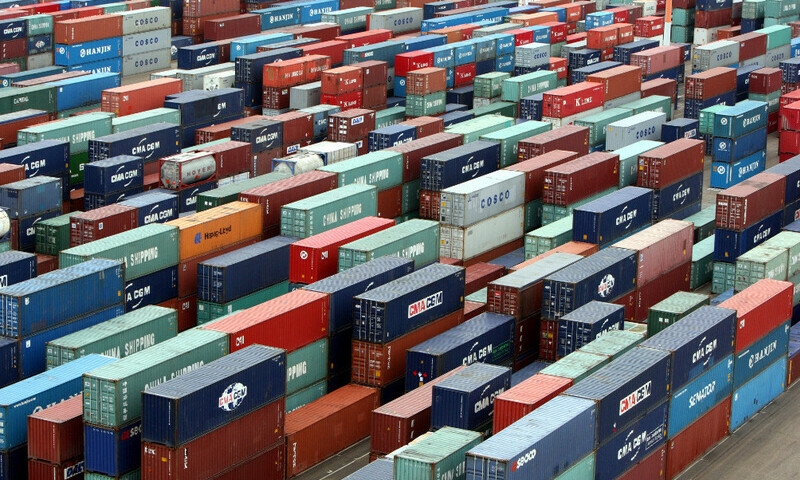ISLAMABAD: Pakistan’s top chambers of commerce and industry on Wednesday urged the Senate Standing Committee on Finance and Revenue to get anti-export levies and the Special Tax Regime for the erstwhile Federally Administered Tribal Areas (Fata) removed in the upcoming federal budget 2025-26.
Industry representatives warned that these measures are draining national revenue and stifling economic growth, urging lawmakers to support business-friendly policies in the next budget for the country’s economic development.
The committee, chaired by Senator Saleem Mandviwalla, initiated consultations with the chambers of commerce and industry to make proposals for incorporation in the Budget 2025-26.
Karachi Chamber of Commerce and Industry (KCCI) President Jawed Bilwani spoke at length about the special tax regime for the ex-Fata region. He stated that tea imports had an abnormal surge of about five times compared to their population of four million people, causing a revenue loss of Rs30 billion annually because of this special facility.
Demand removal of special tax facility for erstwhile Fata region
He also highlighted the issue of low duties and taxes on the raw materials of the plastic industry, particularly polyethylene for manufacturers. He reiterated that manufacturers import more raw materials due to these low taxes and then sell them at higher prices.
The KCCI chief demanded the restoration of the zero-rated regime on the supply of raw materials to registered exporters under the Export Facilitation Scheme (EFS). He also sought restoration of the final tax regime for exporters.
Mr Bilwani also asked to provide regionally competitive energy to the export sector. In the next budget, the government should revive the incentives in the shape of duty drawbacks to the export sector. He pointed out that an estimated 40pc of motorcycle and 60pc of automobile parts were smuggled in due to high duties on regular imports. He suggested to rationalise these duties to encourage legitimate imports.
Moreover, he echoed his concerns about stuck-up sales tax refunds despite the FBR’s claims of releasing payments within 72 hours. He deplored that non-payment of refunds and advance taxes increased the cost of doing business manifold.
Senator Mandviwalla stated that the FBR had admitted the 72-hour refund policy of sales tax before the committee. The committee decided to take up the matter in the upcoming budget meetings.
The Lahore and Gujranwala Chambers of Commerce and Industry raised advance tax on exports. They apprised that the State Bank of Pakistan (SBP) charged one per cent tax plus an additional 1pc on remittances. They proposed the rationalisation of this tax.
Furthermore, the Sialkot Chamber of Commerce and Industry highlighted the expulsion of tribunals for matters in which sales tax exceeds Rs2 million and income tax Rs1m, expressing concern over the lack of proper appellate forums for small taxpayers.
The committee assured them of taking up the matter in the upcoming budget. Additionally, the Sialkot chamber emphasised the need to cater to the growing number of young entrepreneurs, with around 600 to 700 new registrations recorded each year, highlighting the importance of supportive policies for this emerging business segment.
Additionally, the Rawalpindi Chamber of Commerce and Industry proposed lowering general sales to 15pc in the upcoming budget to help revive the dyeing industry. RCCI President Usman Shaukat also proposed providing tax incentives to export-based industries upon completion of export targets and providing necessary financial facilities to small and medium enterprises.
Funds for women entrepreneurs
The Islamabad Women’s Chamber of Commerce and Industry (IWCCI) urged the government to allocate dedicated funds for women entrepreneurs in the upcoming budget, emphasising the need to create a more supportive environment for women-led businesses.
The chamber also called for reducing the existing Rs50m revenue threshold for corporate women, arguing that the current limit poses a barrier to entry for many capable women entrepreneurs seeking to formalise and expand their businesses.
The Paper and Stationery Association called for the withdrawal of taxes on stationery items. They stated that the federal government had promised in the previous year to eliminate the existing taxes on stationery items in the following budget cycle. The association urged the government to honour its commitment, stressing that these taxes should be withdrawn immediately to ensure the affordability and accessibility of essential educational materials for students nationwide.
Published in Dawn, May 1st, 2025


